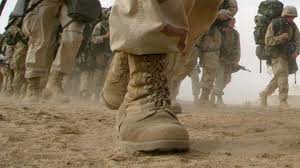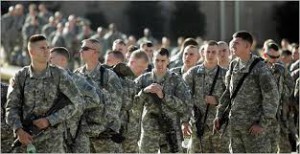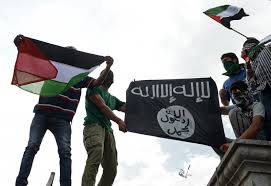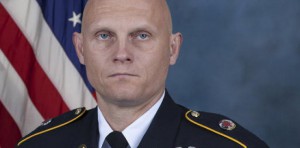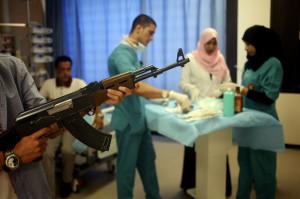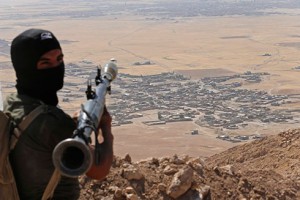Defense Secretary Ash Carter said Tuesday that raids such as the one that killed Master Sgt. Joshua Wheeler will be at the center of a revamped U.S. strategy in Iraq and Syria.
Carter told a Senate panel that more direct raids on the ground and from the air will be accompanied by renewed support for local forces to take Ramadi and Raqqa, two of the front lines in the stymied war against the Islamic State. However, he said the DOD does not support a no-fly zone to protect allied rebels in Syria from Russian bombing, despite calls for it from some lawmakers, Hillary Clinton and former Pentagon officials.
President Barack Obama’s administration is rethinking its campaign after a year of setbacks including the failure of a train-and-equip program in Syria, a lack of progress in taking back territory from the Islamic militants in Iraq, and the recent entry of Russia on the side of Syrian President Bashar Assad.
“We won’t hold back from supporting capable partners in opportunistic attacks against (the Islamic State), or conducting such missions directly, whether by strikes from the air or direct action on the ground,” Carter said during testimony to the Senate Armed Services Committee.
More ground raids mean higher risk for American servicemembers and will no doubt raise questions over mission creep more than one year into the new war in the Middle East.
The White House has maintained troops are not in combat in Iraq and Syria. Instead, it says the United States is running special operations, counter-terrorism, training and advisory, and humanitarian missions.
Wheeler, a special operator, was killed last week in a joint U.S.-peshmerga raid to rescue 70 Iraqi hostages who were slated for execution by the Islamic State. Special operations raids are typically secretive and the DOD acknowledgement that it will conduct more signals a more aggressive and public approach for the United States.
“The death of Master Sgt. Wheeler might not be the last death of an American servicemember in this war against (the Islamic State),” Sen. Tim Kaine, D-Va., said.
Carter confirmed the danger to troops, telling senators that the military is adapting with a more effective strategy than in the past.
“They are in harm’s way in this fight against (the Islamic State), no doubt about it,” he said.
In Raqqa, moderate Syrian allies are within 30 miles from the Islamic State’s seat of power and the United States will provide more equipment and stepped up air strikes to assist in an assault. Meanwhile, Iraq has now deployed American-made F-16 fighter jets and more capable military commanders as it works to retake Ramadi, the capital of Anbar province.
“As we see more progress toward assembling capable and motivated Iraqi forces under Baghdad’s control and including Sunni elements, we are willing to continue providing more enabling capabilities and fire support to help our Iraqi partners succeed,” Carter said.
Sen. John McCain, R-Ariz., pressed Carter on creating a no-fly zone in Syria to protect allied rebel forces on the ground that have been targeted by forces under Russian President Vladimir Putin.
A no-fly zone, similar to zones created over Iraq in the 1990’s, have been suggested by Clinton as she runs for president as well as former Defense Secretary Robert Gates and former Iraq commander Gen. David Petraeus. The DOD has analyzed the possibility but believes it would inevitably draw the United States into a direct conflict with Assad — a move the Obama administration has avoided despite waging war within Syria against the Islamic State.
“What you are saying is the strongest nation in the world, the most capable, cannot establish a no-fly zone to protect people from being barreled bombed from Bashar Assad … Of course we can do it. This is an embarrassing moment for the United States,” McCain said.
stripes.com
